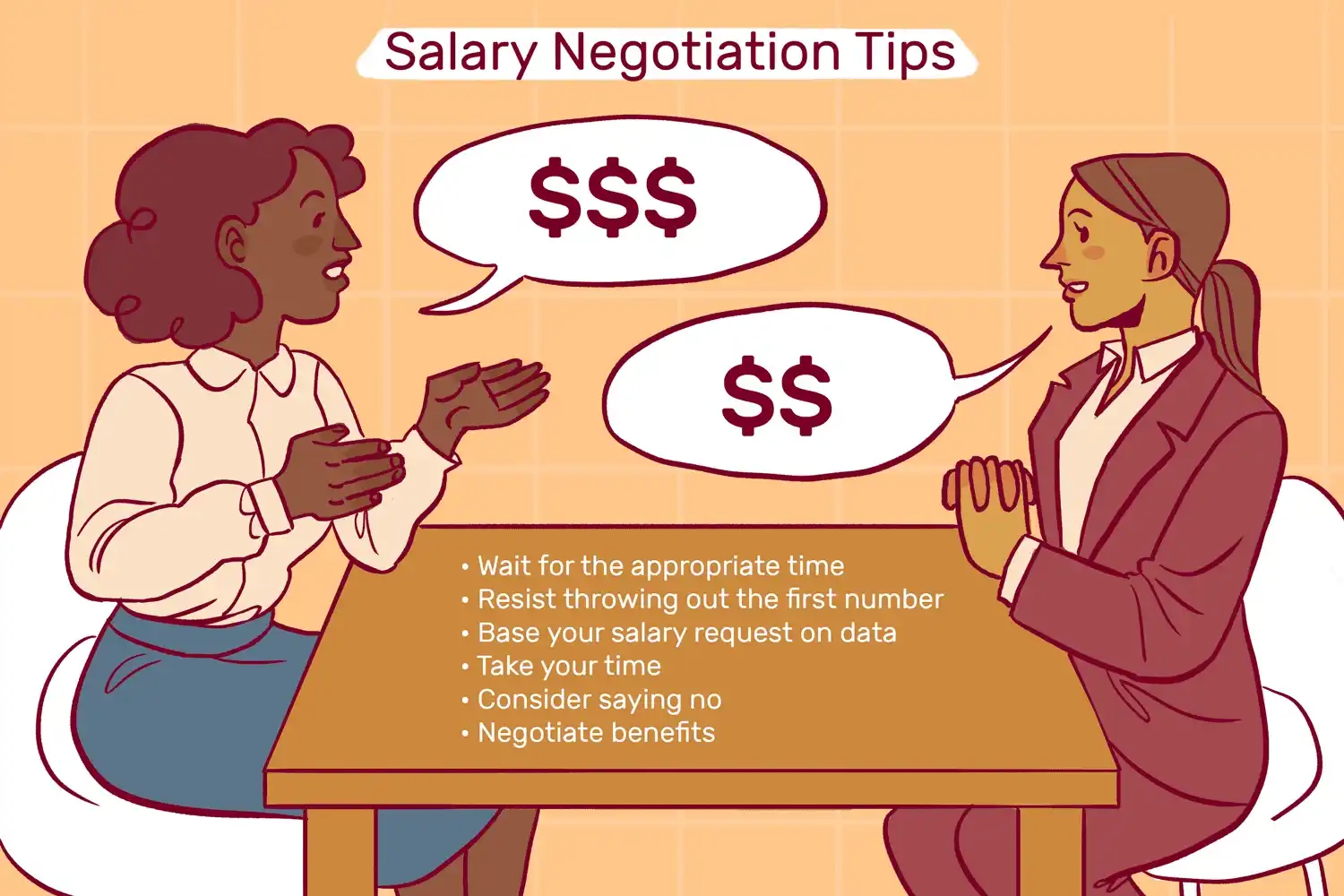Negotiating salary and benefits: Negotiating your salary and benefits can be a daunting task, but it’s an essential step in securing a fair and rewarding compensation package. In this article, we’ll guide you through the process of effectively negotiating salary and benefits. With the right approach and mindset, you can maximize your earnings and job satisfaction.
Know your worth:
Before entering into any negotiation, it is crucial to research and understand the market value of your skills and experience. Websites like Glassdoor, Payscale, and LinkedIn can provide valuable insight into industry standards and salary ranges for your position. Knowing your value helps you set realistic expectations and negotiate from a position of strength.
Timing is key:

Time plays an important role in the negotiation process. Ideally, bring up the topic of salary and benefits after you receive a formal job offer. This demonstrates your interest in the role without prematurely focusing on compensation. However, if the employer initiates the conversation, be prepared to discuss your expectations.
Anchor your expectations:
When discussing salary and benefits, it’s wise to start with a figure higher than your ideal number. This technique, known as anchoring, sets the stage for negotiation and gives you room to compromise. Remember to justify your request by highlighting your skills, experience and the value you bring to the company.
Consider the whole package:
Salary is only one part of your compensation package. Don’t overlook other benefits like health care, retirement plans, stock options, and bonuses. Sometimes, an employer may be willing to pay less if they can provide additional benefits you value.
Be prepared to listen to:
Negotiation is a two-way conversation. Be open to your potential employer’s suggestions and concerns. If they don’t meet your salary expectations, inquire about opportunities for performance-based raises or bonuses. Finding common ground is essential to a successful negotiation.
Practice effective communication:
Communication is important during negotiations. Maintain a professional and respectful tone throughout the conversation. Express your points clearly and actively listen to the employer’s feedback. Avoid ultimatums or confrontational language, as they can hinder a productive discussion.
Have a backup plan:

It is possible that the negotiation may not produce the exact result you desire. Always have a backup plan in case the offer falls short of your expectations. Consider your financial needs, job market conditions, and overall career growth potential of the location before making a decision.
Leverage competitive offers:
If you’ve received multiple job offers, use them as leverage when negotiating. Politely inform your potential employer of other offers and ask if they can match or improve their offer. However, be careful not to sound too aggressive or pushy.
Follow the text:
Once you and the employer have reached an agreement, it is essential to document the terms in writing. This helps avoid misunderstandings later on. A formal letter or email summarizing the agreed salary, benefits and other important details provides clarity for both parties.
Stay positive and flexible:
Remember that negotiations should ideally result in a win-win situation. Even if you don’t achieve what you hoped for, maintaining a positive attitude and being flexible can lead to a successful outcome. Building a strong working relationship with your employer from the start is valuable in the long run.
Negotiating salary and benefits is a skill that can significantly affect your financial well-being and job satisfaction. By doing research, communicating effectively, and being open to compromise, you can navigate the negotiation process with confidence. Remember that successful negotiations are not just about numbers; They are also about building a mutually beneficial relationship with your employer.
Read Also: Networking skills and building professional relationships
![]()






One thought on “Negotiating salary and benefits”